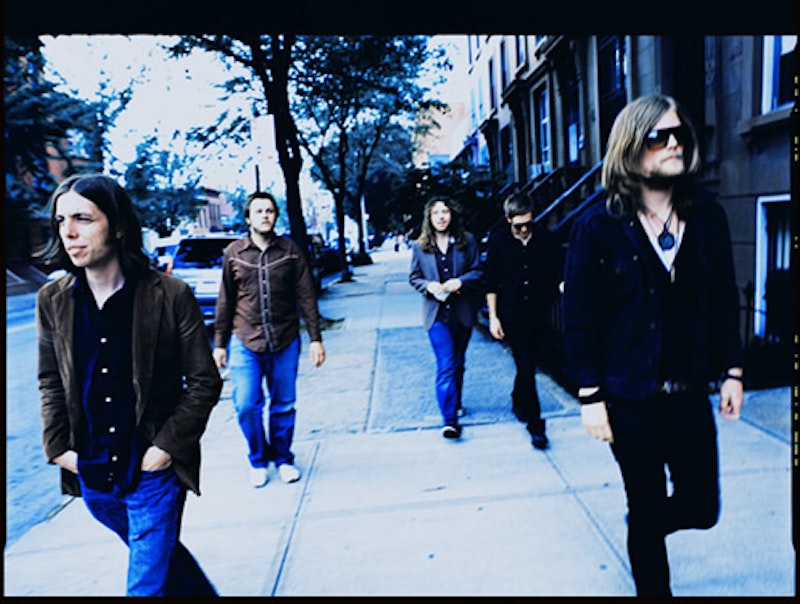The Broken Side of Time, the first full length by New York-based indie rockers Alberta Cross, got the ATO re-release yesterday, putting them squarely on the up-and-up, alongside that label's much bigger acts like Radiohead, David Gray and Ben Kweller. It's surely deserved: Alberta Cross is one of the more exciting bands I've heard in the past couple years, with Petter Ericson Stakee's powerful vocals and the band's The Walkmen-meets-My Morning Jacket heavy blues vibe. Alberta Cross earned a deserving hit a couple years back with "Low Man," and while The Broken Side of Time may be a little harsher and darker than fans of that song are expecting, there's still plenty of draw. And though some will surely say they've heard this album a thousand times before—and it's true, they have—they'll also have to admit, they've rarely heard it done so well. The critics, for their part, are united in their praise: "an intoxicating mix of apocalyptic riffs, sob-worthy singalongs and brooding blues," as the wonderful Camilla Pia wrote at NME.
"Low Man"
The album mostly breaks down between the Oasis-like anthemic wailings of "Song Three Blues," "ATX," "Broken Side of Time" and the U2/Coldplay (read: when both those bands were kinda-sorta-good) pop-rock of "City Walls," and "Leave Us and Forgive Us." Then of course there's "Old Man Chicago," the Neil Young style alt-country throwback that positions itself nicely as the third track slowdown.
Alberta Cross have all the slightly overproduced stadium rock charm (sure they're still mostly playing max. cap. 500 venues, but they'll get there) of the aforementioned brit-rockers—not to mention they just wrapped up a supporting tour with Dave Matthews—so I really have no doubts their success is assured. Another album or two and they'll be on every FM rock station.
("That was 'ATX' by Alberta Cross. Before that we heard the White Stripes 'Seven Nation Army,' Weezer's 'Island in the Sun' and 'Otherside' by the Red. Hot. Chilli. Peppers. Oh yeah! Keep it here for more of your favorite hits from yesterday and today at blah-biddy-blah-blahhh.")
The question of course (at least the only interesting question for me): Will their indie cred—such as it is right now—withstand such success? A few still talk about Coldplay's Parachutes with affection and of course The Joshua Tree is the only defense you'll ever hear for U2, if anyone besides Rolling Stone still talks about them at all. Oasis and Weezer, however, manage a better version of, "Yeah, but everything before [insert mid-to-late-90s album of your choosing here] was really fucking good." I don't think anyone is defending Dave Matthews anymore (it's programmed at this point: every 20-something music blogger who hears Crash remembers the douchey A&F-wearing high school quarterback who probably actually got laid on prom night. What a dick). Radiohead gets by on the Weird Factor. Admit it, if it weren't for the 180 that was Kid A and Amnesiac no one would have OK Computer at the top of their Best Album of the 90s list.
My point is this: No one who sells out stadiums (or, in Alberta Cross' case, will sell out stadiums) gets much more than their 15 mins. Which is probably for the best, because when you get to be as old as Noel Gallagher or Bono or, yes, Thom Yorke, there's about a 1,000 way younger bands doing exactly what you did way better than you ever did it. Alberta Cross, come on up.

